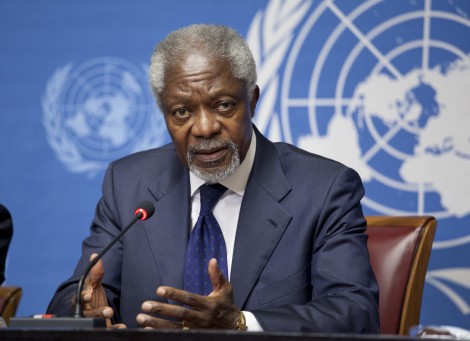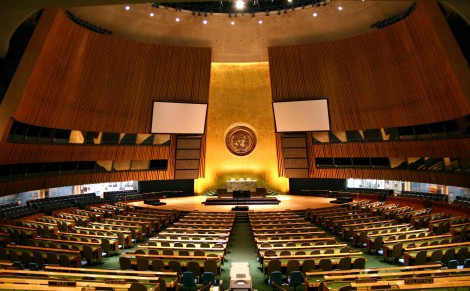[dropcap]T[/dropcap]here is one nation that is globally singled out like no other: Israel. Although the nation is fairly small — approximately the geographic size of El Salvador — it has become the focal point of international denunciation.
The United Nations Human Rights Council (UNHRC) has condemned the country 62 times from June 2006 until August 2015, seven more than the sum-total of all other nations combined. Remarkably, in March 2016 it was the only state censured, of over 193, by the UN Commission on the Status of Women, and following a 2007 vote, the country’s alleged transgressions became a permanent agenda feature for forthcoming council sessions.
In light of ongoing Israeli-Palestinian conflicts, such criticism has spread to university campuses as well. It is important when considering such discourse to look not only at Israel’s shortcomings but also at its successes, for seeing all sides is crucial to finding resolutions to even the most complex disputes.
This is not to excuse Israel of criticism for its sometimes heavy-handed and detrimental policies — in fact, it should be criticized — but to attempt to offer a fair and productive perspective on the basis of which we should move forward.
What is often missing from anti-Israel discourse is any mention of its successes. For instance, Israel hosts the largest Gay Pride Parade in the Middle East, attracting nearly 200,000 participants. According to travel site Wonderful Odysseys Worldwide, Tel Aviv in Israel is also the “most gay friendly” city in the world. It is also only one of two countries to enter the 21st century with a net-gain in trees.
In terms of representation, women in Israel have served in the highest national offices, and ethnic and religious minorities (e.g. Circassians, Druze, Bedouin) account for some of the country’s most decorated soldiers and senior political figures.
Nevertheless, Israel has been consistently criticized, and much of this criticism stems from its treatment by the UN. Apart from the UN’s adoption and ratification of Resolution 181, which partitioned Mandatory Palestine into independent Arab and Jewish states, the organization has woefully failed to maintain a balanced hand on Israel-related issues.
Following the invasion of Israel in 1948 by five neighbouring nations, the UN repeatedly disempowered Israel from defending itself.
The velocity with which the organization has pursued such policies has increased over the years. From the UN’s 1975 ratification equating Zionism to racism, to the proliferation of various international committees and divisions, such as The Committee to Investigate Israeli Practices in the Territories, and Special Rapporteur on the Situation of Human Rights in the Palestinian Territories Occupied since 1967, initiatives that continue to validate and justify a prejudicial double-standard when evaluating Israel have been pursued.
These demarches flourished in the 1970s and 1980s as the UN ideological blocs crystallized with the advent of the Non-Aligned Movement. In 1974, Yasser Arafat, then leader of the Palestinian Liberation Organization (PLO) was invited to speak in front of the General Assembly. Arafat’s political and militant group, Fatah, actively engaged in terrorist attacks against Israel: the two most notable being at the Munich Olympics and the infamous Coastal Road Massacre resulting in over 100 casualties.
Likewise, the numerous appointees of the Special Rapporteur position have expressed very strong anti-Israel positions. This is in spite of the Special Rapporeur’s directive to serve as an objective, neutral observer. The current appointee, Michael Lynk, allegedly supports the movement at the University of Western Ontario, where he teaches, called Israeli Apartheid Week; former representative John Dugard lauded how Palestinian “militarized groups armed with rifles, mortars and Kassam-2 rockets confront the IDF with new determination, daring and success”; as well, Richard Falk, prior to his appointment, accused Israel of “crimes against humanity,” encouraged divestment, and during the 2008 Israeli-Palestinian conflict compared the former nation’s actions to those of the Nazis.
[pullquote-image][/pullquote-image]

Map of Israel. UNITED NATIONS/CC WIKIMEDIA
An inconsistent standard
Such disproportionate attention paid to Israel is incongruent with the lack of sanctions imposed upon other countries. Though a comparative regional analysis is helpful to understanding the disproportionate criticism Israel has received from the UN, we must refrain from conflating political regimes with their respective populations or diasporas. Any state mentioned in this analysis is mentioned due to its regime’s undemocratic characteristics, which are not necessarily a reflection of its citizens’ values or beliefs.
The Assad regime of Syria, which has perpetrated some of the worst human rights atrocities in recent history, claiming the lives of over 400,000 of it own civilians — approximately 11.5% of the pre-war population — and the displacement of over 4 million inhabitants, received only 17 UNHRC condemnations; in the same period, Israel accumulated 62.
In Saudi Arabia, women are restricted from driving, opening a bank account, and travelling without a male accomplice; among other abuses, Saudi Arabia sentenced a blogger expressing political dissent to 1,000 lashes and 10 years imprisonment, and has yet to receive a single condemnation. Yemen, which permits child brides and mandates that a wife must, “permit [the husband] to have legitimate intercourse with her” and “refrain from disobedience, and perform her work around the conjugal home, as other women do” has yet to receive sanctions as well.
In Iran, homosexual acts are punishable by death, and they have been issued only five condemnations. Turkey, home to the most journalists jailed globally, has detained over 10,000 people in the wake of a failed coup attempt and subjected them to torture, beatings, and rape; no condemnations have been issued to them.
The hypocrisy was even acknowledged publicly by the former UN Secretary General Kofi Annan in his final speech before the Security Council on the Middle East:
Some may feel satisfaction at repeatedly passing General Assembly resolutions or holding conferences that condemn Israel’s behavior. But one should also ask whether such steps bring any tangible relief or benefit to the Palestinians. There have been decades of resolutions. There has been a proliferation of special committees, sessions, and Secretariat divisions and units. Has any of this had an effect on Israel’s policies, other than to strengthen the belief in Israel, and among many of its supporters, that this great Organization is too one-sided to be allowed a significant role in the Middle East peace process?
Even worse, some of the rhetoric used in connection with the issue implies a refusal to concede the very legitimacy of Israel’s existence, let alone the validity of its security concerns. We must never forget that Jews have very good historical reasons for taking seriously any threat to Israel’s existence.
Moreover, according to the think-tank Freedom House, over half of UN member-states themselves are wholly or partially undemocratic, which should encourage us to reconsider the credibility of the organization when framing and regulating certain debates.

UNITED STATES MISSION GENEVA/CC FLICKR
Effects of anti-Israel sentiment
In World Affairs journalist Joshua Muravchik’s estimation the cumulative effect of such criticism has left an indelible mark upon the psyche of Israel. “[This] endless drumbeat, from one body to the next, from one corner of the world to another, singling out Israel as the pariah among nations, shapes the political environment in which Israel must live, trade, defend itself, and pursue peace with its neighbors.”
This should not be construed as an attempt to absolve Israel of misdoings. Israeli policies should be scrutinized and debated, and the UN plays an important role in doing so. Nevertheless, the Israeli-Palestinian conflict ought to be contextualized and evaluated from a historically balanced perspective, something that has been missing from the discourse.
Such criticism has also found fertile ground in North America, particularly on university campuses, where the impact of anti-Israel sentiment is visible in many cases.
The day after a 72-year-old Israeli civilian was stabbed on a bus amid the recent spate of what popularly became known as the “knife intifada”, students at the University of California, Berkeley partook in chants of “intifada, intifada, we support the intifada.”
At Portland State University, Ami Horowitz, a satirical filmmaker, secured several pledges for future donations to a militant Islamist group, Hamas, despite couching his pitch as, “We wanna fund operations against Israel” and “the types of operations we’re talking about, soft targets. Schools and cafés, that kind of thing. Make ‘em feel it.”
Perhaps the most moving incident occurred last year at UCLA, during a routine confirmation hearing for Rachel Beyda, a second-year economics major and Jewish student, before the student council’s Judicial Board. As reported by The New York Times, Beyda’s ability to remain unbiased notwithstanding her faith was publicly scrutinized and debated by the council for an extended period of time; according to students and Jewish leaders, such a discussion was reflective of typical stereotypical and prejudicial perceptions of “divided loyalties” that continue to affect Jewish people today.
[pullquote-features]Israel’s treatment as a pariah within both international and intellectual circles is an exemplification of hypocrisy[/pullquote-features]
Groups affiliated with the Boycott, Divestment, and Sanctions (BDS) movement also continue to come under fire. Although the BDS movement does not consider itself anti-Israel, and instead is committed to condemning Israel’s actions in Palestine, many students claim to have experienced prejudice and targeting from groups affiliated with the movement.
For instance, an Indian-American law student, Milan Chatterjee, recently withdrew from the University of California, Los Angeles (UCLA) citing harassment and a hostile campus environment created by “BDS-affiliated organizations and students.” The Anti-Defamation League (ADL) tracked over 520 anti-Israel events on American campuses in 2014, a 30 per cent increase from the previous year, and included BDS-affiliated groups in this analysis.
Some U of T campus groups and organizations in the community, such as Black Lives Matter, have also berated Israel, accusing the state of apartheid and genocide without appropriately recognizing the human rights violations of other states.

PATRICK GRUBAN/CC FLICKR
Likewise, Queers Against Israeli Apartheid singled out Israel for ‘pinkwashing,’ a belief grounded in the idea that Israel’s progressive policies are deliberately designed to mask its human rights violations. Israel’s policies are not perfect, yet despite LGBTQ relationships being forbidden in 74 countries, often stipulating capital punishment or life imprisonment – and despite many of these countries being Israel’s neighbours – Israel was the only country censured.
The way forward
None of this is to detract from criticizing Israel when criticism is due. It is imperative that Israel work to integrate Arab-Israeli communities, and desist from ongoing settlement building. However, in the age of tweets and soundbites, perhaps we ought to be wary of those who present the panacea quite so starkly. Like many other nations, Israel is embroiled with internal strife, military threats, and illiberal politicians. Nonetheless, Israel’s treatment as a pariah within both international and intellectual circles is an exemplification of hypocrisy.
We have been presented with a false choice where one must be either pro-Israel or pro-Palestine. However, the two are not mutually exclusive: the betterment of the former is intertwined with the latter, and vice-versa. In a time when peace becomes harder and harder to find, let us not fall prey to similar factionalism and intolerance. We should, instead, strive to create, mend, and reinvigorate the communal bonds of people who are motivated by peace, security, and self-determination. Through dialogue and understanding, in diverse perspectives and tolerance, the hope is that we may unify and seek resolution.
Ari Blaff is a student at the Munk School of Global Affairs.


